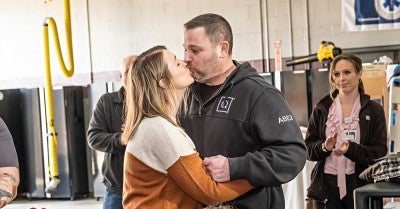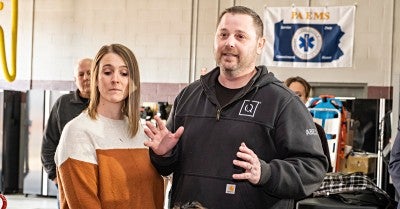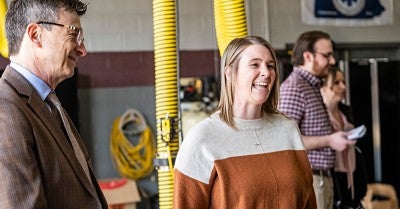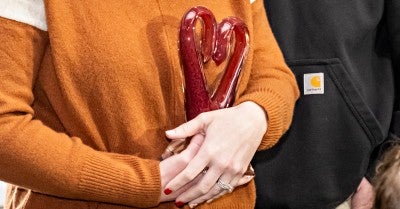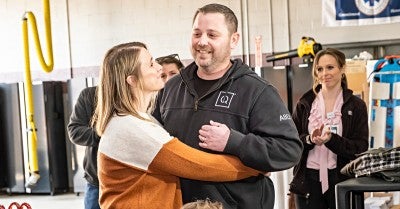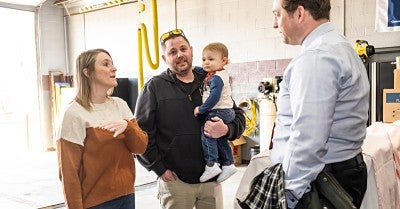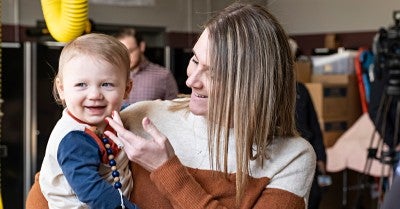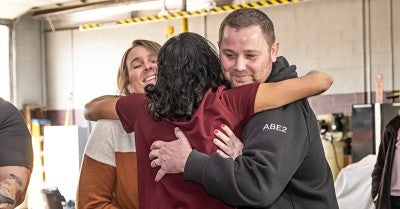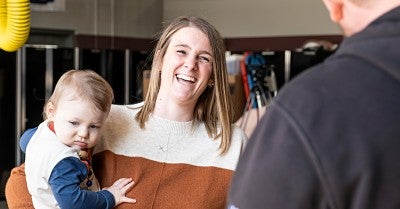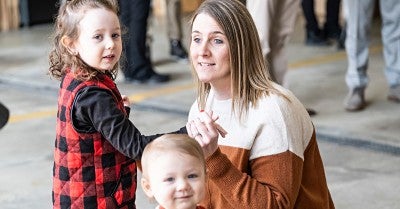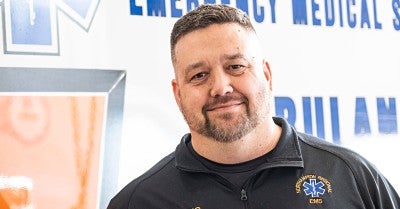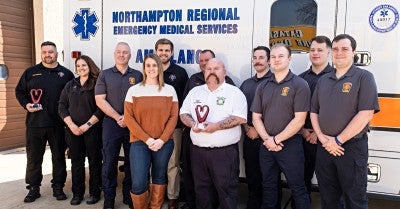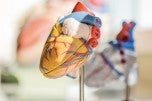Katie, Adam and their two children recently reunited at Northampton Regional EMS headquarters with those who had a hand in saving Katie. From EMS to firefighters to Lehigh Valley Heart and Vascular Institute cardiologists, it was a day for hugs and handshakes.
“In her situation, the cards fell in all the right places,” says Mark Lehman, a paramedic with Northampton Regional EMS who was one of those on the scene the day Katie collapsed. Lehman says the Katie Young reunion was the first time he’d ever reunited with someone he’d saved. “It’s an emotional day. It’s a really great thing to see such a positive outcome like this.”
Lehman and others at the reunion stressed the importance of CPR. “When we got there, one of the firefighters also was doing CPR. It was that early start that changed the outcome,” Lehman says.
Eric Elgin, MD, Chief of Cardiology for the Heart and Vascular Institute, told the reunion gathering that Katie’s case was a prime example of the success of the true chain of survival. “As much as I think we are great at delivering care once they get to our hands, they have to get into our hands,” Dr. Elgin says in praising the emergency care delivered by everyone in advance of Katie arriving at the emergency room doors.
“Loved ones were a key piece, along with the EMS crew, in getting her to that point (hospital care),” Dr. Mehta says. “The importance of hands-only CPR is absolutely critical in this situation, and loved ones, any bystander, can be involved in that.”
“I want to say thank you to everyone,” Adam Young says . “I wouldn’t have my best friend right now if it wasn’t for all of you.” Adam and Katie met when they were 16 and worked as lifeguards at the same pool. That’s also where both learned CPR for the first time. “I owe everyone here, everything,” Adam says.
“It was emotional. It felt good,” Katie says of the reunion.
